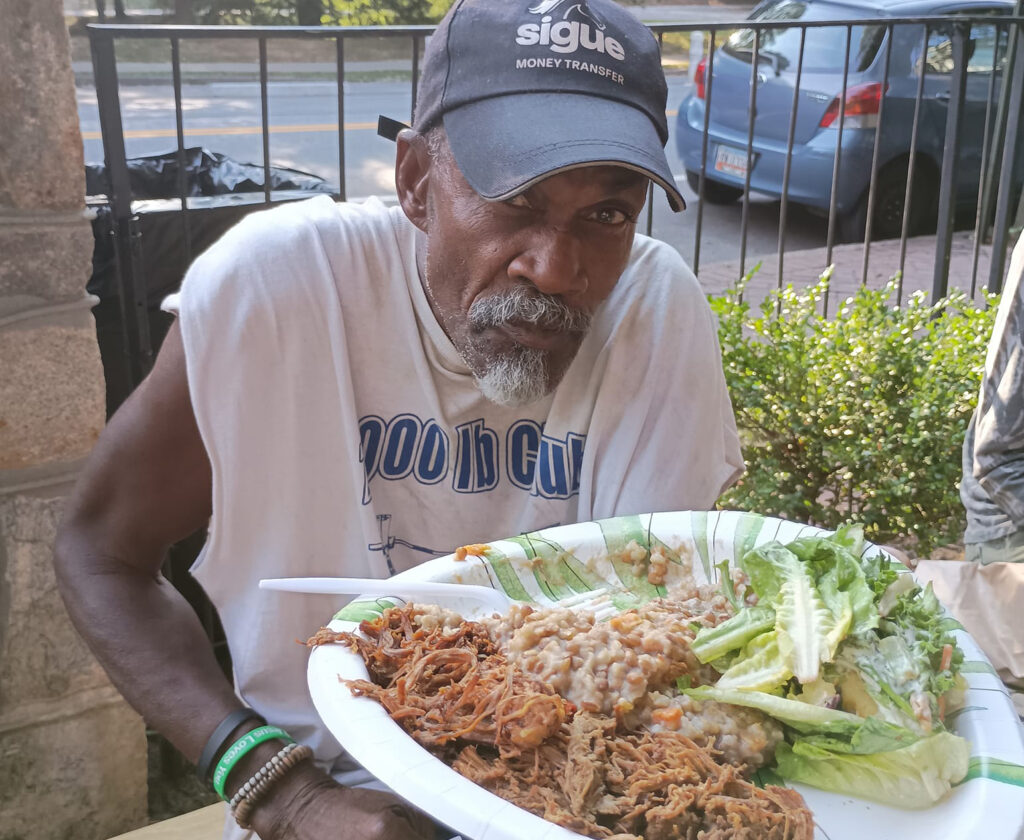Thanksgiving & Living Eucharistically

Rejoice always, pray without ceasing, in everything give thanks; for this is the will of God in Christ Jesus for you.
(1 Thessalonians 5:16-18)
When you were a kid, were you ever scolded for being ungrateful or not saying “thank you?”
If you were, you know this can be difficult criticism to accept. After all, how do you go about changing the way you feel? How do you say “thank you” when you’re not actually feeling grateful?
In the verse quoted above, Saint Paul encourages us to “give thanks” in all things. And, when I first reflected on these words, I could hear echoes from my childhood.
Is Saint Paul simply telling us to feel grateful all the time?
On one level, yes. As Saint John Chrysostom wrote when reflecting on this verse, “Always to give thanks, this is a mark of a philosophic soul. Have you suffered any evil? But if you will, it is no evil” (Homily 10 on 1 Thessalonians). In other words, a soul that embraces true wisdom (ie, that is philosophic) can see the truth behind the smokescreen of misfortune: the one who can suffer harm with patience–who can remain grateful even during trying times–is blessed, while the one who inflicts harm on others has fallen into sin and suffers the truest evil.
(This is a theme Saint John Chrysostom returned to many times, even arguing in another sermon that it is impossible to harm a virtuous man. The only way he can be truly harmed, the great saint insists, is by choosing to fall into sin.)
But, as you might be able to see from the above, this “giving thanks” is more than merely psychological or emotional. When one “gives thanks in all things,” as Saint Paul exhorts, one is not simply feeling a particular way: grateful as opposed to ungrateful. Rather, one is living in a particular, virtuous way.
One is living liturgically.
Eucharistically.
You probably know that the Divine Liturgy is often referred to as the “Eucharist.” This comes from the Greek word εὐχαριστέω which means “to give thanks.”
In fact, the Liturgy is the ultimate example of thanksgiving. It’s not simply a psychological posture or feeling of gratitude. Instead, our thanks to the Lord is expressed in our offering.
Consider what happens in the Liturgy, in this cycle of offering: God offers us wheat; we offer it back to Him as bread; and then He returns the bread to us as His Body.
All things originate from the Lord. And, when we live as Christians, we offer all things back to the Lord.
(This is a theme that Saint Dionysios the Areopagite explores extensively in his writings, and it’s a theme picked up by generations of Fathers through the centuries.)
With all this in mind, perhaps we can retranslate Saint Paul’s words:
Rejoice always, pray without ceasing, in everything live eucharistically; for this is the will of God in Christ Jesus for you.
The Lord has given us many blessings: from physical resources to skills and talents. Just as we receive wheat from the Lord and offer back bread, we can offer back the blessings we have received.
The Parable of the Rich Fool (Luke 12:16-21) is a great example for us. The rich fool was unbelievably wealthy, and his first thought was to build bigger barns to store his treasure. Reflecting upon the parable, Saint John Chrysostom advises us to invest our wealth, not in bigger structures but in the stomachs of the poor.
This is what it means to offer back: to assess the gifts the Lord has given us and deploy them as part of the Lord’s ministry to the poor and downtrodden.
And this, more than the simple feeling or expression of gratitude, can help us truly live with thanks.It can help us, in all things, to truly live eucharistically.



